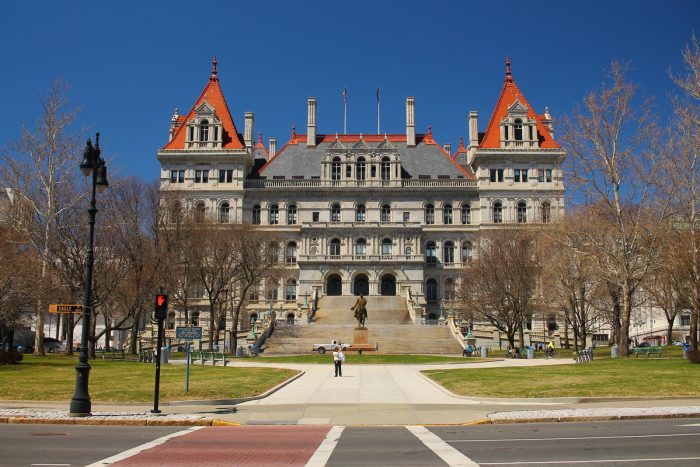By Judy Patrick
Citizens have a right to know who they’re dealing with, whether it be in government or private enterprise. But that’s not the case when it comes to limited liability companies, or LLCs, which for example can own property, apply for grants, operate as landlords and donate to political campaigns. Holding government accountable for its actions demands a well-informed public. We need to know who, not what, is benefiting in order to do our jobs as citizens.
Discovering who’s behind the curtain isn’t easy. Cruise through your local property tax rolls or the state’s campaign finance disclosure database. You’ll see plenty of LLCs but you won’t see many names.
Anonymous shell companies have been a popular vehicle for money laundering, tax evasion, organized crime, terrorism and other forms of corruption for decades. Yet, as the proposed New York State bill notes, establishing an LLC requires less personal information than getting a library card.
That’s why it’s imperative for Gov. Kathy Hochul (D) to sign the LLC Transparency Act, passed in both the state Assembly and Senate, which would require these special kinds of business organizations to publicly identify the owners to the state and to the public registry run by the Department of State.
At the federal level, the Corporate Transparency Act, taking effect next year, seeks similar disclosures from businesses, including LLCs, but stops short of making the information publicly available. A wide variety of businesses, from pizza shops to mall developers and property buyers, use the LLCs as an organizing business structure.
The approach, sanctioned by state law, provides the owners some limits on liabilities the company could face. As a practical matter, LLCs also offer the people who actually own the company the ability to remain anonymous.
Under current reporting requirements, LLCs need only supply a company name, county of operation and a basic address where legal documents should be sent. Sometimes, the address is a P.O. Box, sometimes it’s an attorney’s office, sometimes it’s a registered agent.
For anyone interested in knowing more, the information provided is often frustratingly nondescript and consequently useless. We all have a well-established interest in this information, and the state Legislature should be commended for recognizing this by including solid public disclosure requirements.
The lack of transparency with campaign donations is just one of the reasons the LLC Transparency Act has the support of good government groups, such as Common Cause and the League of Women Voters. While a 2019 law change required LLCs making political donations to disclose their owners, many are ignoring the requirement, the groups say.
The Business Council of New York State opposes the law, saying it would violate the privacy of law-abiding businesses — including thousands of small businesses organized as LLCs — and put their security at risk. There are some provisions in the legislation for public disclosure to be waived when “a significant privacy interest exists.” The law’s efficacy will be determined in part in how waiver requests are handled.
Given the benefits state law confers upon LLCs, it’s not too much to ask that they at least let us know who they are. This is a good step toward much-needed transparency
Judy Patrick is vice president for editorial development of the New York Press Association, of which TBR News Media is a member.






